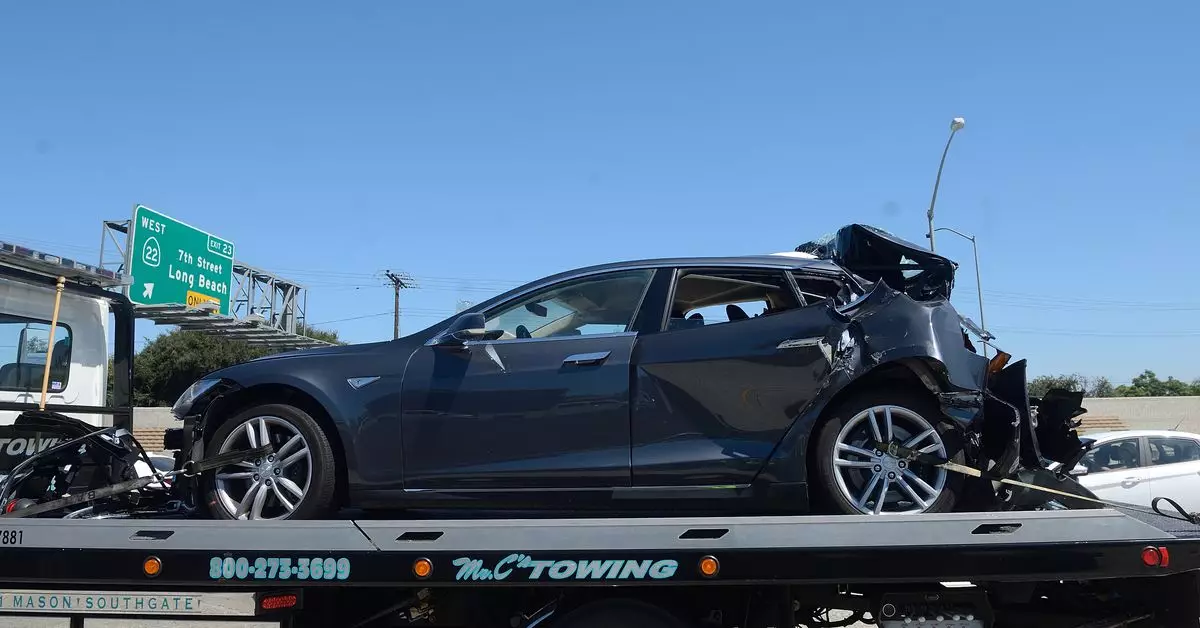As the automotive industry continues to evolve, particularly with the rise of autonomous vehicles (AVs), regulatory oversight has become increasingly crucial. Under the Biden administration, a significant rule mandated that automakers and technology firms report any crashes involving both fully and partially autonomous vehicles. According to a report from Reuters, Donald Trump’s transition team is now poised to dismantle this rule, a move that could have profound implications for the future of AV regulation and safety.
This reporting requirement, initiated by the National Highway Traffic Safety Administration (NHTSA), aimed to enhance transparency regarding how emerging technologies interact with real-world driving scenarios. Specifically instituted in 2021, the rule required companies to report accidents that occurred when an automated driving system was engaged within a 30-second window of impact. The intent was clear: to gather data necessary for determining the safety impacts of these technologies, which, despite their promise, have been implicated in several serious incidents.
Removing the crash reporting stipulation would be particularly advantageous for Tesla. Not only has Tesla reported the highest number of incidents under this regulation, with over 1,500 crashes documented, but the company’s automatic data collection capabilities far exceed those of its competitors. This dominance in the data sphere led to Tesla being linked to a staggering 40 out of 45 fatal crashes noted by NHTSA, prompting increased scrutiny of its Autopilot and Full Self-Driving (FSD) technologies.
The public disclosure of these crash statistics has illuminated worries surrounding Tesla’s driver-assist features, which, while revolutionary, require drivers to remain attentive at all times. The increased reporting not only sparked NHTSA investigations into Tesla’s technology but has also bedeviled the company with public relations challenges. Insider information suggests that the automaker has been lobbying for a regulatory overhaul, viewing the standing general order as an impediment to its business model and innovation trajectory.
Tesla’s relationship with the political landscape has been complex. CEO Elon Musk has been a vocal supporter of Trump, reportedly investing substantial personal resources in backing the former president’s campaign. Should Trump successfully roll back the crash reporting requirements, it could be seen as a favor returned, aligning regulations with industry interests, particularly those of Tesla.
Additionally, Trump’s administration is considering the elimination of subsidies for electric vehicle (EV) manufacturers, a move that poses both risks and opportunities for Tesla. On one hand, removing government financial support could place smaller, less established EV companies at a disadvantage, while on the other hand, Tesla, as an established leader in the EV market, may weather a subsidy-free environment more effectively than its competitors. Musk’s confidence likely stems from Tesla’s economies of scale and technological advancement, which could enable the company to navigate such changes with relative agility.
Furthermore, Musk is actively pushing for relaxed restrictions on fully autonomous vehicles ahead of the proposed launch of Tesla’s robotaxi service in 2026. This ambitious venture could redefine urban transportation, but it hinges significantly on the regulatory environment.
The potential reversal of the crash reporting rule under Trump’s administration raises daunting questions about future oversight and safety for autonomous vehicle technologies. Proponents of transparent regulations argue that removing such requirements could lead to a reduction in data available to understand AV safety dynamics, potentially compromising public safety in a technology that is still in its nascent phases.
The interplay between politics and technology will be paramount in shaping the future of autonomous vehicles. Should regulations be relaxed, it’s crucial for all stakeholders — from manufacturers and regulators to consumers — to remain vigilant about safety and accountability. The debate surrounding autonomous vehicles is not solely about technological advancements but also about ethical driving practices and corporate responsibility. The future of transportation might very well depend on how these issues are navigated as we forge ahead into an era dominated by self-driving technology.

